第10章
That, sir, is the position of the noble Lord. And what defence of that policy have we had from the noble Lord? Has he laid down a single principle on which our relations with China ought to depend? Has he enumerated a solitary political maxim which should guide us in this moment of peril and perplexity? On the contrary, he has covered a weak and shambling case by saying -- what? --that he is the victim of a conspiracy. (Cheers and laughter). He did not enter into any manly or statesmanlike defence of his conduct. He reproduced petty observations made in the course of the debate which I thought really had become exhausted and obsolete, and then he turned round and said that the whole was a conspiracy! Accustomed to majorities which have been obtained without the assertion of a single principle, which have, indeed, been the consequence of an occasional position, and which have, in fact, originated in the noble Lord's sitting on that bench without the necessity of expressing an opinion upon any subject, foreign or domestic, that can interest the heart of the country or influence the opinion of the nation, the noble Lord will at last find that the time has come when, if he be a statesman, he must have a policy (cheers); and that it will not do, the instant that the blundering of his Cabinet is detected, and every man accustomed to influence the opinion of the House unites in condemning it, to complain to the country that he is the victim of a conspiracy." (Cheers).
It would, however, be quite a mistake to presume that the debates were interesting because such passionate interests hinged upon them. There was one night's debate after another night's debate, and still no division. During the greater part of the battle the voices of the gladiators were drowned in the hum and hubbub of private conversation.
Night after night the placemen spoke against time to win another twenty-four hours for intrigue and underground action. The first night Mr. Cobden made a clever speech. So did Bulwer and Lord John Russell;but the Attorney-General was certainly right in telling them that "he could not for one moment compare their deliberations or their arguments on such a subject as this with the arguments that had been delivered in another place." The second night was encumbered by the heavy special pleadings of the attorneys on both sides, the Lord-Advocate, Mr.
Whiteside and the Attorney-General. Sir James Graham, indeed, made an attempt to raise the debate, but he failed. When this man, the virtual murderer of the Bandiera, sanctimoniously exclaimed that "he would wash his hands of the innocent blood which had been shed," a half-suppressed ironical laugh re-echoed his pathos. The third night was still duller.
There was Sir F. Thesiger, the Attorney-General in spe, answering the Attorney-General in re, and Sergeant Shee endeavouring to answer Sir F.
Thesiger. There was the agricultural eloquence of Sir John Pakington.
There was General Williams of Kars, listened to with silence only for a few minutes, but after those few minutes spontaneously dropped by the House and fully understood not to be the man they had taken him for.
There was, lastly, Sir Sidney Herbert. This elegant scion of Peelite statesmanship made a speech which was, indeed, terse, pointed, antithetical, but girding at the arguments of the placemen rather than producing new arguments of his own. But the last night the debate rose to a height compatible with the natural measure of the Commons.
Roebuck, Gladstone, Palmetston and Disraeli were great, each in his own way.
The difficult point was to get rid of the stalking-horse of the debate, Sir J. Bowring, and to bring home the question to Lord Palmerston himself, by making him personally responsible for the "massacre of the innocents." This was at last done. As the impending general election in England will in the main revolve upon this point, it may not be amiss to condense, in as short a compass as possible, the results of the discussion. The day after the defeat of the Ministry, and the day before the ministerial announcement of the dissolution of the House of Commons, the London Times ventured upon the following assertions:
"the nation ... will be rather at a loss to know the precise question to be answered ... Has Lord Palmerston's Cabinet forfeited the confidence of the People on account of a series of acts committed'on the other side of the world six weeks before they were here even heard of, and by public servants appointed under a former administration?"(It was at Christmas when Ministers heard of the matter, and they were at that time as ignorant as everybody else).